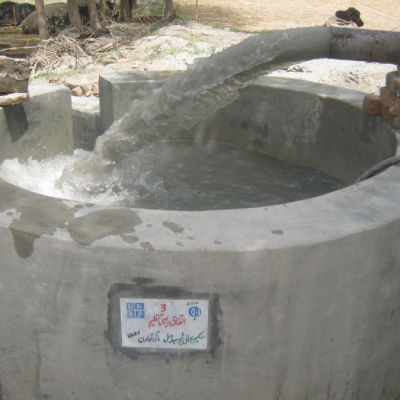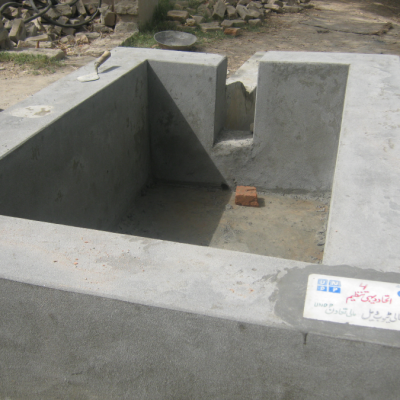Restoring Livelihood
Restoring Livelihood (DRR)
ADO’s experience with regards to the disaster is about responding to the relief and rehabilitation needs of the flood affected people and disaster prone communities in district Layyah.
In 2010, Pakistan witnessed the worst inundation of its history that left more than 17 million adversely affected. Layyah was among the most affected districts where thousands were rendered homeless to say the least.At that time, ADO with the financial assistance of UNDP implemented 11 months’ long “Restoring Livelihoods and Community Based Infrastructure and Governance”, at UC Sahoo Wala and Baseera, Tehsil Karror, District Layyah.
The overall purpose of the project was to i) restore access to essential services (health, education, employment, markets) through employment intensive rehabilitation of basic/critical infrastructure of flood effected communities and house households at risk and ii) revive non-farm livelihoods of flood effected communities through access to income generation and decent employment opportunity.
ADO conducted capacity building trainings for community groups in the target communities on Community Management and Skills, as the consequence of which a cadre of 41 community groups’ office barriers was trained to take the lead. Prior to this, ADO had already formed 41 groups in 18 target villages. The training contents are mentioned below:
- Introduction of the Project and UNDP/ADO
- Knowledge about Community Organization (CO)
- Need identification and Priorities Setting
- Participatory Problem Solving Approach
- Networking with other NGOs and Government Departments
- Record Keeping, Financial Management and Resources Management
- Awareness about Social Rights and Responsibilities
- COs office bearers' Roles and Responsibilities
- Planning for Local Development
Following the training, ADO and the community groups completed 41 rehabilitation schemes. These included installation of tube wells (08), construction of link roads (21), hand pumps (12 schemes). The accumulative financial size of the project was roughly Rs. 24,075,500. The total number of direct beneficiaries was 32,057. Of this, 15,262 were males and 16,795 females. Basic community infrastructure of 24 villages was improved in this project.
The project also included Cash for Work component. Under this component, ADO involved about 1100 skilled and unskilled male and female workers in relief and rehabilitation work in the flood affected areas. The unskilled workers received 300 Rs per day wages whereas the skilled workers earned 600 Rs. per day.
One Room Shelter project is another rehabilitation input extended by ADO to house those 350 families who had lost their homes in 2010 floods. ADO constructed one room (16’x16′) that had an attached washroom (4’x6′).
Solidar (Switzerland) provided 9.45 million rupees for One Room Shelter project. The average expenses accrued on a unit were Rs. 130,000. The houses were constructed in five union councils, namely, Sahoo Wala, Baseera, Kotla Haji Shah, Lowhanch Nasheeb and Jhakar.
Relief Operation
Apart from providing food to more than 2000 people, at 22 camps, for 28 days,ADO also provided the following non-food items to the 2010 flood effectees:
- Hygiene Kits* 5500 20
- Litre Jerry Cans 22,000
- Bandage Kit 655
- Bandage Kit 655
- Tool Kit 1200
- Bedding Kit 588
In 2010, International Orgnization for Migration (IOM) and ADO distributed non-food items among 1,679 families in inundated union councils of district Layyah.These included:
| Plastic Sheets | Small Tents | Kitchen Set | Blanket | Ropes | Poles & Pegs |
|---|---|---|---|---|---|
| 2,840 | 1,244 | 613 | 4,260 | 2,982 | 934 |
In the same year, South Asia Partnership-Pakistan and ADO, with assistance from International Medical Crop (IMC), carried out a project “Sustainable Holistic Assistance for Affected Communities, at district Layyah. We:
- Formed 100 community groups (each comprising 20 to 25 males and females)
- Conducted hygiene sessions (200 sessions)
- Explained about and demonstrated the use of hygiene kits
- Distributed 5,500 hygiene kits (cotton ,soap, tooth-brush, tooth paste, nail cutter, towel, dettol, shampoo, etc.) and 22,000 Jerry Cans (for water storage)
Funded By UNDP


